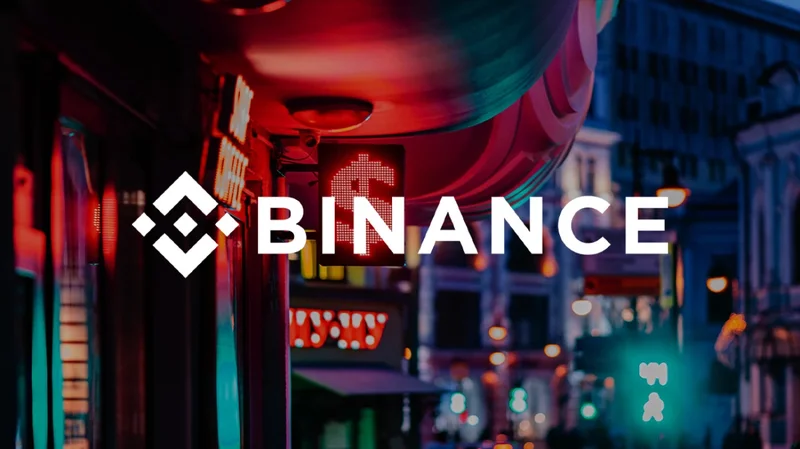Connecting Data to Wealth Creation
Connecting Data to Wealth Creation
Let’s get one thing straight. When the house of cards comes tumbling down, the casino owners don’t rush out to give you your money back. They might offer you a free drink, a sad little voucher for the buffet, and a pat on the back as security escorts you to the door.
That’s exactly what we just witnessed.
The crypto market decided to have its own little Black Friday, a $19 billion fire sale where the only thing on clearance was the life savings of 1.6 million traders. Bitcoin, which was sniffing around an imaginary $125,000, took a nosedive. Altcoins didn't just fall; they swan-dived off a cliff into a pool of concrete. And right in the middle of this digital bloodbath, as people frantically tried to close positions and salvage what was left of their portfolios, the big, friendly, centralized exchanges just… stopped working.
Imagine the sheer, gut-wrenching panic. You’re watching thousands, maybe hundreds of thousands of dollars, evaporate in real-time. Your liquidation price is getting closer and closer, a digital guillotine descending on your neck. You click "sell." Nothing. You refresh. Error message. The screen freezes. The little wheel just spins and spins, mocking you. It’s not the market that’s killing you anymore; it’s the platform you trusted. It's the tollbooth operator who has locked you on the tracks as the train barrels down.
And now, after the smoke has cleared and the bodies are counted, Binance waltzes in with a press release and a checkbook, promising to make it all better. Give me a break.
Binance’s co-founder, Yi He, released a statement that is a masterclass in corporate doublespeak. In response to the chaos, Binance offers compensation after $19bn crypto crash that crippled centralised exchanges, boosted DeFi. Let’s read between the lines, shall we?
“Due to significant market fluctuations… and a substantial influx of users, some users have encountered issues,” she said.
My translation: “Holy crap, a lot of people tried to use our service during a crisis—you know, the exact moment our service is supposed to work—and our servers melted into a puddle of silicon slag.”

Then comes the grand offer: “If you have incurred losses attributable to Binance, please contact our customer service… We will review your account activity individually… and provide compensation accordingly.”
This sounds great, right? It sounds responsible. It’s also a perfectly constructed legal shield. The key phrase here is “attributable to Binance.” How, exactly, is a regular user supposed to prove that? You have to demonstrate that your loss wasn't because you made a stupid, overleveraged bet (which, let's be honest, many did), but because their specific system failure was the direct cause of your liquidation.
Who is the judge and jury in this little tribunal? Oh, right. Binance. You’re submitting your claim to the very entity you’re accusing. This isn't a compensation plan; it's a customer service labyrinth designed to wear you down until you just give up. It’s like complaining to a rigged slot machine that it didn’t pay out. The machine just blinks its lights and points to the fine print you never read. And offcourse, they explicitly state they won't cover "losses resulting from market fluctuations." In a market crash, what loss isn't a result of market fluctuations? It’s a brilliant, infuriating, and utterly hollow gesture.
Here’s the part of the story that really gets me. While the so-called "user-friendly" centralized giants were choking on their own volume, the "scary" and "unregulated" world of Decentralized Finance (DeFi) had its finest hour.
Uniswap, the big dog of decentralized exchanges, processed a record $10 billion in a single day. No press release about "issues." No downtime. It just worked. Aave, a lending protocol, handled over $180 million in liquidations in an hour. Stani Kulechov, its founder, called it the “largest stress test” of its infrastructure. The system didn’t just survive; it thrived. It did exactly what it was programmed to do.
Michael Bentley from Euler said it best: “No emergency circuit breakers. No regulatory interventions. Just free markets and code.”
This wasn't just a technical failure for Binance; it was a philosophical one. It was a disaster. No, a disaster is something you can't control. This was a complete and utter betrayal of the central promise these exchanges make to their users: that they are the safe, reliable bridge to the chaotic world of crypto. They sell themselves as the responsible adults in the room, and the moment things got a little loud, they locked the doors and hid under the table.
They are the weak link. The single point of failure. The very problem that crypto was invented to solve. And we’re supposed to believe their half-baked compensation offer is anything more than a PR move to stop people from flocking to the platforms that actually held up under pressure? I just don't buy it. Then again, maybe I'm the crazy one for expecting anything more from a multi-billion dollar company.
Let's be brutally honest. Binance's offer isn't an act of goodwill. It's a calculated business decision. It's damage control. They're dangling a few bucks in front of the angriest users to avoid a class-action lawsuit and stem the bleeding of customers to DeFi. They’re not fixing the problem; they’re patching the optics. The fundamental flaw—that a centralized entity can and will fail you at the worst possible moment—remains. They hold the keys, they own the servers, and when the system breaks, you're the one left holding an empty bag. Don't thank them for the free drink. Remember why you're broke in the first place.